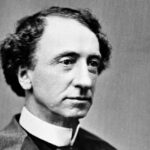Blog Post
With Sir Roger Scruton’s passing, a great defender of Western Civilization has left us
By Jonathon Van Maren
Sir Roger Scruton passed away yesterday after a six month battle with cancer at the age of 75, and we have lost the man Prime Minister Boris Johnson rightly called our era’s “greatest modern conservative thinker.” His friend Douglas Murray observed that Scruton was “a man who seemed bigger than the age,” and Peter Hitchens echoed my own thoughts when he noted that the death of this “man of immense courage, intellect and fortitude” is a “loss we can ill afford in these narrow, conformist times.”
If Scruton had been a progressive, he would have already received the Hollywood treatment. He was not only an academic (knighted for his “services to philosophy, teaching, and public education” in 2016), he was a man willing to defend Western civilization in practice as well as in theory. His path to conservatism came by chance, if you believe in that sort of thing, when he “happened to be in Paris” as he told me several years ago. There, he witnessed the 1968 student protests, an “unruly mob of self-indulgent middle-class hooligans” advocating for “ludicrous Marxist gobbledegook. I was disgusted by it, and thought there must be a way back to the defence of western civilisation against these things. That’s when I became a conservative. I knew I wanted to conserve things rather than pull them down.”
In 1979, Scruton became an intellectual freedom-fighter, smuggling banned books behind the Iron Curtain, forming relationships with dissidents in Communist Czechoslovakia (noting that he was “inwardly frozen by the eerie chill of Communism”), and even teaching courses on forbidden subjects. They created, he wrote in the Daily Mail last June, “a creditable attempt at an underground university, with samizdat (or underground) publications, book smuggling, structured courses on important subjects, and even examinations leading to a degree conferred by the Divinity School of the University of Cambridge.”
Scruton’s underground work took genuine courage, and the seminars were “run by people brave enough and well-enough known to operate under the nose of the secret police. From time to time, these seminars would be raided and sometimes our visitors, too, would be arrested and even detained for a night or two. But the fuss these seminars created enabled us to establish genuinely secret courses in Prague, Brno and Bratislava. Our goal was the one that Jiri had taught us: to pass on the knowledge and the culture that the official universities had suppressed.”
In the summer 1985, Scruton was arrested in a park in Brno when a tree “changed into the slick young secret policeman concealed behind it,” and was promptly deported by the Communists. For his work, former dissident-turned-president Vaclav Havel awarded Scruton the Medal of Merit. Scruton needed no thanks—for the “task of perpetuating Czech society and culture in defiance of the secret police,” he wrote, “was a wonderful vision—and who would not give himself to it, heart and soul, when told that there would be no reward beside the danger?”
The West needed Scruton, too, especially after the Wall came down and the Left no longer had to defend what they had done when they had their own empire. Scruton penned fifty books, many of them essential, laying out the case for traditionalism and conservatism: How To Be A Conservative; The Soul of the World; The Aesthetic Understanding; Beauty. His BBC documentary Why Beauty Matters is a brilliant apologia for true art and a scathing condemnation of the unimaginative but exorbitantly expensive junk foisted on us today. Modern architecture, he wrote, is also profoundly depressing: “The new city is a city in which glazed facades mirror each other’s emptiness across streets that die in their shadow.”
I had the privilege of having a conversation with him two years ago on the future of the West, and I asked him about the role of beauty in civilization. The destruction of our aesthetic heritage, he told me, has been simply devastating, because it is so much easier to destroy than to build. “You can get rid of the old traditional ways of building, of harmonizing, of decorating and so on, and just produce these sterile geometrical shapes, and this is somehow the voice of the future,” he said. “There’s a lot of money to be made by these sorts of people. Let’s face it, in Canada it’s been a disaster because you had a very fragile inheritance of architecture, a few little places that have beautiful downtown areas, but most of it was just swept away, and the new thing that replaced it is nothing more than drawing-board engineering, which produces temporary buildings of glass and steel which will be swept away in their turn. So you no longer have the idea of a beautiful settlement. A town becomes simply a temporary shelter, put up by multi-national businesses, and in those conditions, people can’t find in their environment anything beautiful at all unless they get out of the city altogether into the wild woods and lakes of the further country.”
Scruton’s lack of popularity in many circles comes from his resolute refusal to accept the culture they have created. “I have nothing positive to say about popular culture, and nothing positive to say about the cultural establishment,” he wrote. “We have entered, as I see it, a spiritual limbo.Our educational institutions are no longer the bearers of high culture and public life has been deliberately moronised. But here and there, sheltered from the noise and glare of the media, the old spiritual forces are at work. Popular culture contains pockets of gentleness and melody. Architects, writers, and composers produce works with are neither kitsch or ‘kitsch’. Prayer and penitence have been interrupted, but not forgotten. To those who wish for it, the ethical life may still be retrieved. Ours is a catacomb culture, a flame kept alive by undaunted monks. And what the monks of Europe achieved in a former dark age, they might achieve again.”
His death, of course, has also triggered a wave of vitriol from his enemies, because that is the sort of people they are. A few LGBT activists have attempted to angrily draw attention to his opinions on sexuality, which are now considered (and what a boring word) “controversial,” noting with their usual venom that they are glad he is gone. This says more about them than him, as does the disgusting fact that The Guardian spent almost their entire obituary not summarizing the great man’s life, but rehashing the smelly little hit job (subsequently debunked by Douglas Murray and apologized for ) by George Eaton of the New Statesman, who scrabbled ineffectually at Scruton’s pedestal before retreating in disgrace. As Scruton himself said: “It’s been a great adventure for me to be so hated by people I hold in contempt.”
We will miss Sir Roger deeply, especially as his insights and keen wit are so needed in these times in which we live, times which had no greater critic than Scruton himself. I asked him, when we spoke, what he thought the future looked like for the West. “It is a general truth, I think, that people only wake up to a situation when it’s too late to remedy it,” he replied. “That is something that Hegel once said: The owl of Minerva only flies in the dusk. I think we’re in that condition. People are waking up to some very important truths about the nature of human communities and what is necessary to survive, and propagate, but they’re waking up to it at the eleventh hour.” In those last words is the hope: The eleventh hour, after all, is by definition almost too late.
And in his passing, Sir Roger Scruton has again left us with an all-important reminder: Memento Mori. Remember to die.








